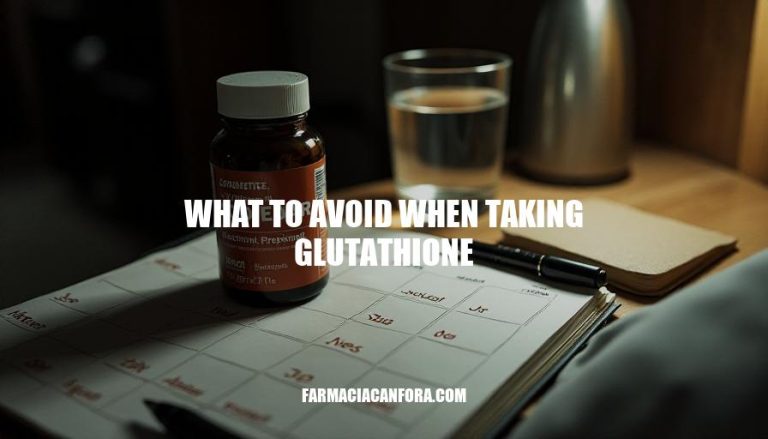


When taking glutathione supplements, it’s crucial to be aware of certain factors that can diminish its effectiveness. Understanding what to avoid helps you maximize the benefits of this powerful antioxidant, ensuring you get the most out of your supplementation. Let’s explore some key things to steer clear of to enhance your glutathione experience.
Avoiding alcohol while taking glutathione is crucial because alcohol consumption can significantly deplete glutathione levels and reduce its effectiveness. Here’s why:
By avoiding alcohol, you help maintain optimal glutathione levels, ensuring it can effectively perform its roles in detoxification, antioxidant defense, and overall health.
Smoking significantly impacts glutathione (GSH) levels by depleting this crucial antioxidant. Cigarette smoke introduces a high amount of reactive oxygen species (ROS) into the body, which overwhelms the antioxidant defenses, including GSH. This oxidative stress damages cells and tissues, leading to inflammation and various diseases.
The depletion of GSH due to smoking reduces its effectiveness in neutralizing ROS, thereby diminishing the benefits of any GSH supplementation. Essentially, the oxidative burden from smoking is so high that it can negate the positive effects of additional GSH, making it harder for the body to maintain a healthy oxidative balance.
Caffeine can interfere with the body’s ability to utilize glutathione effectively in several ways:
Free Radical Production: Caffeine can stimulate the production of free radicals. Since glutathione’s primary role is to neutralize these free radicals, excessive caffeine can counteract glutathione’s antioxidant benefits.
Enzyme Antagonism: Caffeine may antagonize glutathione-dependent enzymes, slowing down the detoxification process.
Absorption Issues: Consuming caffeine and glutathione together can affect glutathione absorption levels and reduce its bioavailability.
Digestive Upset: Caffeine is associated with gastrointestinal problems like indigestion and abdominal pain, which can be exacerbated when combined with glutathione.
Avoiding caffeine when taking glutathione can help ensure that the body can effectively utilize this important antioxidant.
Here are specific medications to avoid when taking glutathione and their negative interactions:
Chemotherapy Drugs (e.g., cisplatin, carboplatin):
Anticoagulants (e.g., warfarin, heparin):
NSAIDs (e.g., aspirin, ibuprofen):
Immunosuppressants (e.g., corticosteroids, cyclosporine):
Oral Contraceptives:
Always consult with a healthcare provider before combining glutathione with any medication.
Processed foods should be avoided when taking glutathione because they can increase oxidative stress and counteract its benefits. These foods often contain high levels of unhealthy fats, sugars, and additives that promote inflammation and oxidative damage. This added oxidative stress depletes glutathione levels, reducing its effectiveness as an antioxidant. By avoiding processed foods, you help maintain optimal glutathione levels and support its role in protecting your body from oxidative damage.
Avoiding dairy products when taking glutathione is recommended for several reasons:
These interactions can reduce the effectiveness of glutathione, making it less beneficial for your health.
When taking glutathione supplements, it’s essential to be aware of certain factors that can diminish its effectiveness. These include avoiding alcohol, smoking, caffeine, and specific medications such as chemotherapy drugs, anticoagulants, NSAIDs, immunosuppressants, and oral contraceptives.
Additionally, processed foods and dairy products should be avoided due to their potential to increase oxidative stress and counteract glutathione’s benefits. By understanding what to avoid, you can maximize the benefits of glutathione supplementation and ensure optimal health outcomes.